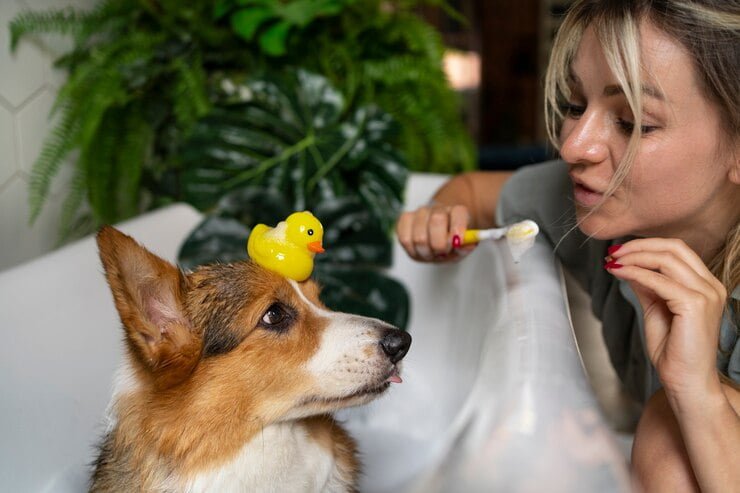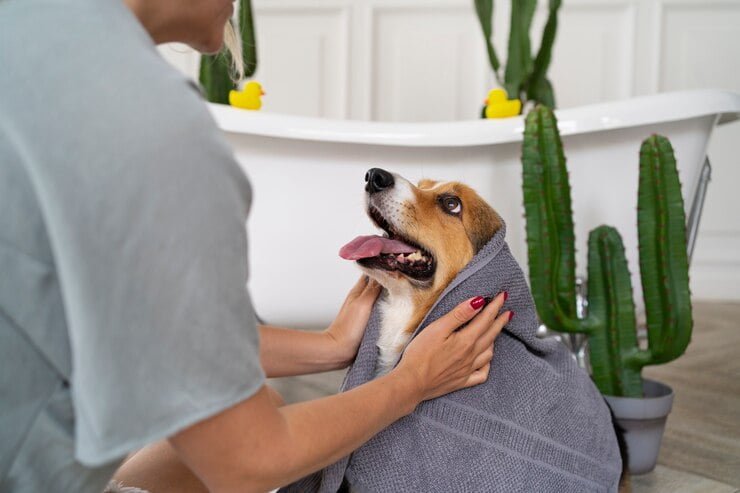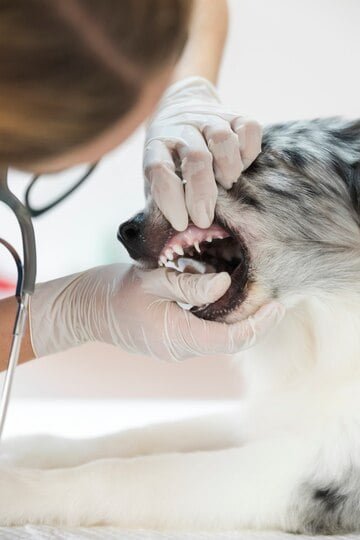
Dental health is as crucial to the overall well-being of your dog as it is for your own. But, it’s an aspect of pet care that a lot of dog owners ignore. Dental hygiene is very much necessary and could cause different issues, ranging from unpleasant breath, to serious issues like periodontal disease. It could affect the liver, heart and kidneys. In this guide, we’ll bring you with the necessary information to ensure that your pet’s teeth are in good condition.
Why is Dental Health Important for Canines?
Prevents Periodontal Disease
The condition is known as periodontal. It’s a frequent problem for dogs, affecting the majority of dogs older than three years. This condition can cause severe pain as well as tooth loss. It could result in general infections that can impact your dog’s organs.
Maintains General Health
A healthy oral hygiene routine can be beneficial to overall health for your dog. Infections from the mouth can get into the bloodstream and cause infections in various organs like kidneys and the heart.
Enhances the The Quality of Life
Dogs with good gums and teeth generally feel more content. They are able to eat with ease as well as less likely to be afflicted by painful toothaches or infections.
How Often Do Dogs Need Dental Cleaning?
At-Home Dental Care
Regularly brushing your teeth is the first protection against dental diseases. Make sure to clean your dog’s teeth on a regular basis however, at least two or three times per week is an ideal way to start. Make use of a dog-friendly toothbrush and toothpaste designed specifically for dogs.
Vocational Cleaning Services
occupational cleanings are recommended based on the advice of your vet, but generally speaking, dogs benefit from getting a competent dental check-up every year. Certain breeds, like smaller dogs, brachycephalic breeds and even a few that are small (like Bulldogs and Pugs) will require more frequent dental cleanings due to their susceptibility to dental problems.
How to tell if your dog needs an appointment for a dental cleaning?

Bad Breath
If your dog’s breath is persistent, bad breath It could be an indication of a buildup of bacteria, which could indicate that a dental check-up is required.
Teeth with discoloration
Stains of brown or yellow on the teeth of your dog are an obvious sign of tartar buildup and need to be taken care of.
Red or Swollen Gums
Healthy gums should appear pink and firm. The appearance of swollen, red or bleeding gums may indicate dental problems that require well-qualified cleaning.
Food-related Problems
If you notice that your dog is having difficulties eating, it may be because of dental discomfort or pain. This could be a sign that a dental exam is needed.
Drooling too much
Although some drooling is common, more drooling may be an indication of dental issues.
Teeth that are missing
Teeth that are loose or missing are typically the sign of advanced periodontal diseases and need immediate attention from a veterinarian.
How to maintain your dog’s Dental Health
Regularly brushing
Make sure you use a dog-specific brush and toothpaste. Human toothpaste is made up of substances that are dangerous for dogs. Start slowly, and gradually introduce brushing. it a pleasant experience.
Dental Chews and toys
Offer your dog chewing toys and dental chews to benefit to clean their gums and brush their teeth.
Dental Diets
Some dog food products are specially designed to help maintain dental health. They can be a great addition to regular brushing and chewing gum.
Regularly scheduled veterinary check-ups
Make sure you are attending regular vet check-ups. your vet will be able to monitor the health of your dog’s teeth and suggest skillful cleanings as required.
Water Additives
There are water-based additives on the market that may help less plaque and tartar buildup. They are a great supplement to the daily routine of your pet’s.
Vocational Dental Cleaning Process

Pre-Cleaning Examination
Before your appointment the veterinarian will do a thorough exam to check the general health of your dog as well as detect any dental issues.
Anesthesia
work-related dentists done with anesthesia in order to warrant your pet is at ease and allows the veterinarian to clean the gumline, where most dental issues arise.
Polishing and scaling
The vet will employ special instruments to eliminate tartar and plaque from your dog’s teeth. This is followed by polishing the surface to prevent further buildup.
Post-Cleaning Care
Your veterinarian may favor specific instructions for post-cleaning treatment that include medications and adjustments to the diet to help your pet’s dental health.
FAQs
Can I Use Human Toothpaste on My Dog?
Human toothpaste is not a source of substances that could be dangerous for dogs. Use only toothpaste made for dogs.
What are the risks of Anesthesia during dental Cleaning?
Although anesthesia is always associated with dangers, it is considered to be safe for the majority of dogs. Your veterinarian will conduct an examination prior to cleaning to assure your dog’s health is satisfying to undergo anesthesia.
Can I improve my dog’s Dental Health Through Diet Alone?
While a diet for dogs with dental issues may benefit improve your dog’s oral health it is not a substitute for regular brushing or competent cleanings.
Conclusion
The health of your dog’s mouth is important for its overall health and quality of living. Through regular brushing as well as dental chews and toys and making time for well-qualified dental cleanings, you will ensure that your dog is happy and has a healthy smile. Don’t wait for the signs of dental problems to show up. Begin an oral hygiene routine today and speak with your veterinarian to figure out the accurate strategy for your pet.